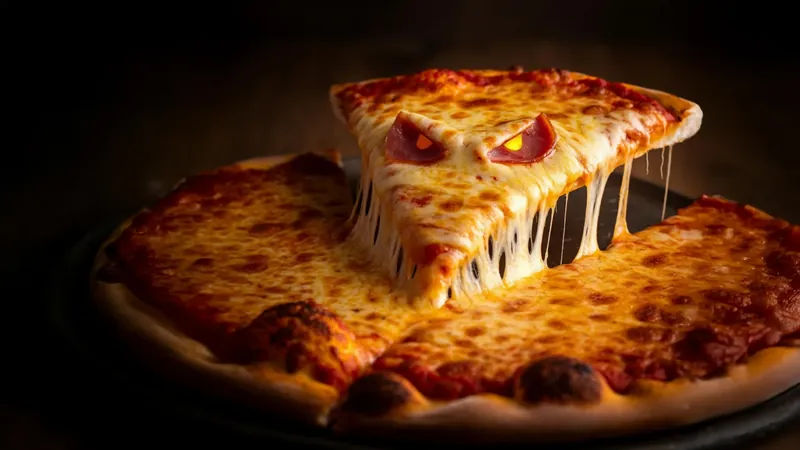
Is Cheese the Hidden Trigger Behind Your Nightmares? Scientists Reveal Surprising Findings!
2025-07-01
Author: Siti
Are Your Nightmares Linked to What You Eat?
Recent research suggests that the food you consume, particularly dairy, may play a significant role in the quality of your sleep and the severity of your nightmares. Dr. Tore Nielsen from the Université de Montréal, leading the study published in *Frontiers in Psychology*, claims that lactose intolerance and certain food allergies are strongly associated with nightmare frequency. These insights challenge us to reconsider our late-night snacks and their potential impact on our dreams.
Food and Dreams: The Findings
In a groundbreaking study involving over 1,000 students from MacEwan University, researchers delved deep into the connections between diet and dream experiences. Participants reported on their sleep patterns, the nature of their dreams, and any food-related associations they felt might be linked to their sleep quality. About one-third of respondents regularly experienced nightmares, with women particularly reporting this phenomenon more often than men.
What Foods Make Your Dreams Darker?
The findings revealed that many participants thought sweets, spicy foods, and yes, dairy, were the culprits behind their unsettling dreams. Strikingly, only 5.5% directly linked their food intake to the tone of their dreams, yet those who did mentioned dairy as a primary disruptor. The researchers found a notable connection: lactose intolerance was linked to gastrointestinal discomfort, resulting in nightmares and poor sleep quality.
Understanding the Nightmare-Diet Connection
"Those suffering from severe gastrointestinal symptoms due to lactose intolerance experience heightened nightmare severity," explained Dr. Nielsen. This connection makes sense since our physical sensations can undeniably influence our mental states during sleep.
Better Eating, Better Sleeping?
This research might also illuminate why fewer students reported food-dream links compared to a similar study conducted a decade ago. Increased awareness of food intolerances may lead individuals to avoid certain triggers, improving their overall sleep quality. This raises an enticing possibility: could dietary changes lead to sweeter dreams?
The Need for More Research
While the link between lactose intolerance and nightmares is compelling, the broader relationship between diet and sleep remains murky. Could poor eating lead to restless nights, or is it the other way around? Dr. Nielsen emphasizes the need for further studies across diverse populations and age groups to validate these findings. Experimental trials are on the horizon, aiming to discern the tangible effects of specific foods—like cheese—on our sleep and dreams.
Conclusion: Rethink Your Nighttime Snack!
As we navigate our sleep routines, perhaps it’s time to consider not just what we eat, but how it shapes our nighttime experiences. Could your beloved cheese be the reason for your terrifying dreams? Stay tuned for more updates as scientists uncover the mysteries of food, sleep, and dreams!


 Brasil (PT)
Brasil (PT)
 Canada (EN)
Canada (EN)
 Chile (ES)
Chile (ES)
 Česko (CS)
Česko (CS)
 대한민국 (KO)
대한민국 (KO)
 España (ES)
España (ES)
 France (FR)
France (FR)
 Hong Kong (EN)
Hong Kong (EN)
 Italia (IT)
Italia (IT)
 日本 (JA)
日本 (JA)
 Magyarország (HU)
Magyarország (HU)
 Norge (NO)
Norge (NO)
 Polska (PL)
Polska (PL)
 Schweiz (DE)
Schweiz (DE)
 Singapore (EN)
Singapore (EN)
 Sverige (SV)
Sverige (SV)
 Suomi (FI)
Suomi (FI)
 Türkiye (TR)
Türkiye (TR)
 الإمارات العربية المتحدة (AR)
الإمارات العربية المتحدة (AR)